It may seem that Martin Luther King, Steve Jobs and the Wright brothers have little in common, but they had an important common denominator: They had a clear why for doing what they did.
We communicated what we were doing, sometimes how we were doing it, but seldom why. Inspired by Simon Sinek and his book Start With Why, we decided to communicate why we exist and why we do what we do.
Our ‘why’ shouldn’t be about making money – that is a result of ‘why’. Ordinarily, very few employees or customers are motivated by making money for shareholders.
Garantell’s ‘why’ became: We believe in making people´s day-to-day lives easier.
Our aim is to simplify day-to-day life, both for ourselves and the people around us. We believe that everything can be done more simply.
Five years ago, Garantell was mass producing wire mesh panels in the largest possible volumes and with the smallest possible dimensions, which was then stored in a huge warehouse. Growth was good and we needed to increase our production capacity.
A feasibility study was carried out: What would the numbers look like with production in Asia and storage in Central Europe? Would it be possible to match Asian imports with production in Sweden?
We discussed various technical solutions for faster mass production, all in order to produce at a lower cost than imports from Asia.
Sometime around this stage, an employee named Erik posed the question: Why not produce that is wire mesh panels optimally adapted to the sizes required for each customer project instead? Then there would be no need to produce as many wire mesh panels, since you would not have to piece together several smaller standard mesh panels to achieve the desired dimensions. Those of us at the meeting said: “No, no, that won’t work, and, if it could work, it wouldn’t be viable financially.” Erik responded by saying that if there’s a will, there’s a way.
After some time, the rest of us realised that it was an exciting idea and was worth exploring further.
When we evaluated the idea, we came across an online tool that we found interesting. The company Skymaker had developed an incredibly sophisticated online drawing program by creating an individual database for every detail that was drawn. The information could then be used to communicate with other programs, such as business systems for calculations, and then be used to prepare quotes and place orders. But also to govern the processes in production.
It was around this time we realised that we could revolutionise our work methods if we were able to build highly flexible and dynamic machines in production, fully controlled by the information generated when the product was drawn up. This would allow for the full automation of our processes. In other words, the customer could draw up their projects online, prepare their quotes and place orders.
We made the decision to restructure the entire company from the ground up, fully automate our processes, and establish wholly order-based production. The cost was estimated at about 80% of our turnover at that time.
Formulating descriptions for full procurement of the project seemed excessive and would have been very limiting, since we knew what we wanted but not how. We therefore opted to collaborate with individuals in whom we had a great deal of trust, by means of running accounts without procurement, and with the freedom to make corrections at any time during the course of the project.
Six partners joined the project, mostly locals from around Värnamo, and all with a common denominator: They are small companies with strong owner commitment. We have run projects with some of the individuals in these companies for more than 25 years. Business understanding was something highly valued, which is why the project was run by dedicated project managers. The project managers had a clear goal regarding what we wanted to accomplish, but were given considerable freedom in how to accomplish it. Skills and expertise were attained through our networks and those of our partners.
Our full range is now available online, and it is fully order-based. We have evolved from offering a few hundred items to offering several billion variants.
Customers themselves are able to draw, prepare quotes, and place orders. A production order is then submitted fully automatically and directly queued in the manufacturing machines.
Plus, packaging optimisation, freight calculations, lead time estimates and credit checks are all fully automated and require no administrative work.
On 31 January 2019, we proudly accepted first prize in the Smart Industry contest, which was awarded by the Royal Swedish Academy of Engineering Sciences (IVA), Siemens, and Teknikföretagen (Association of Swedish Engineering Industries. Read more about it here:
https://www.iva.se/publicerat/Garantell_vann_smartindustri/

Light has always had a special place in Sweden. Even in the darkest of winter, as I walk through the city streets there are lights in every window from candles, lamps, and Christmas decorations illuminating the snow clad buildings. It makes me realise how much people actually miss sunshine and long summer nights. The longing for light in Sweden culminates around one of the shortest days of the year- December 13, called “Luciadagen”.
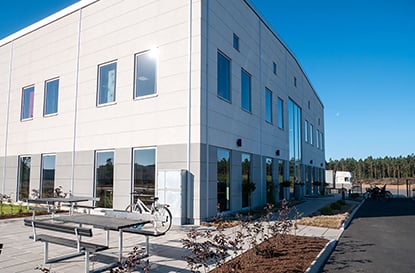
In a company where growth is in constant focus, it is easy to end up in a situation where you constantly ‘just have your head above water’. You know the feeling? The focus is on machines and productivity. You forget things like employee well-being, work environment and tidiness. We are trying to change that! We believe that everything is connected. Order, quality, employee well-being is in line with customer satisfaction. How do we work with this? On many levels actually, but this time I thought I would tell you about our work with property, work environment and the group that has been working with this. Here are some tips to make the workplace more pleasant, based on our experience. Maybe you can get inspired by it!

Remember the moment when the clock struck twelve and you made all these New Year’s resolutions? Eating healthier, moving more? It has been more than seven months now. How is it going? Surveys show that less than 50% of the people are able to keep their promises for more than a couple of months. But do not feel unsuccessful, it is never too late to start a new habit. My tip is not to promise, set goals instead. Then you can have intermediate goals, rewarding yourself. If you miss an intermediate goal, well it is not a disaster, you have a new chance for the next intermediate goal. This feels much better than breaking a promise.


Have you ever wondered how it is to work in a self-leading team? Does it sound like a dream? Or are you rather sceptical? At Garantell, we are trying to work like this. In all transparency, it is a bumpy road. And this might sound corny, but we are growing every day. I want to share some lessons learned. I think that setting shared goals, growing together, and maintaining a good working environment helps us on the way.

It went so fast. One cannot completely grasp it, but we have a spring feeling in our cold country. We went from -18 to +8°C in one week, so we really did not have the time to let it sink in. The snow melted at a furious pace and most of us removed skates and skis to make room for bicycles and boats…
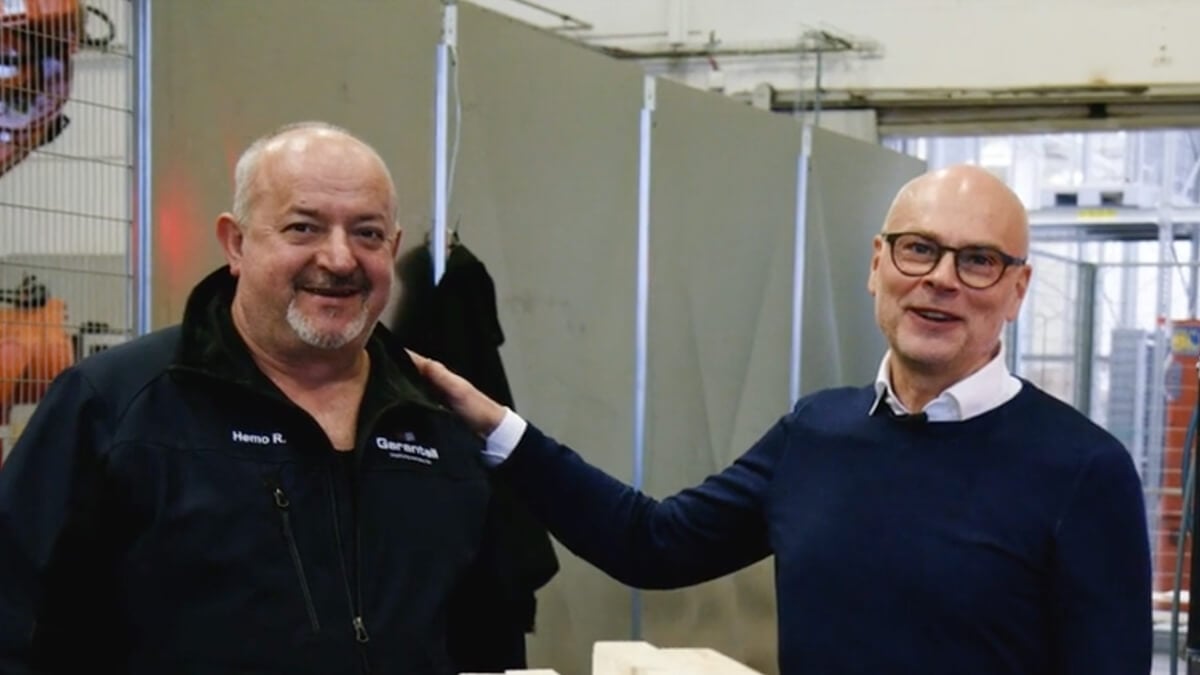
Digitalization is important to Garantell. From our customers drawing mesh decks, machine guards, rear mesh in the Garantellator online to producing it, everything is automatic. But digitalization is only a tool. Our self-leading teams are at the heart of our company. How those two go together explains our chairman Mikael Axelsson. This time around he has not written a blog, but we made a vlog. Watch it here:
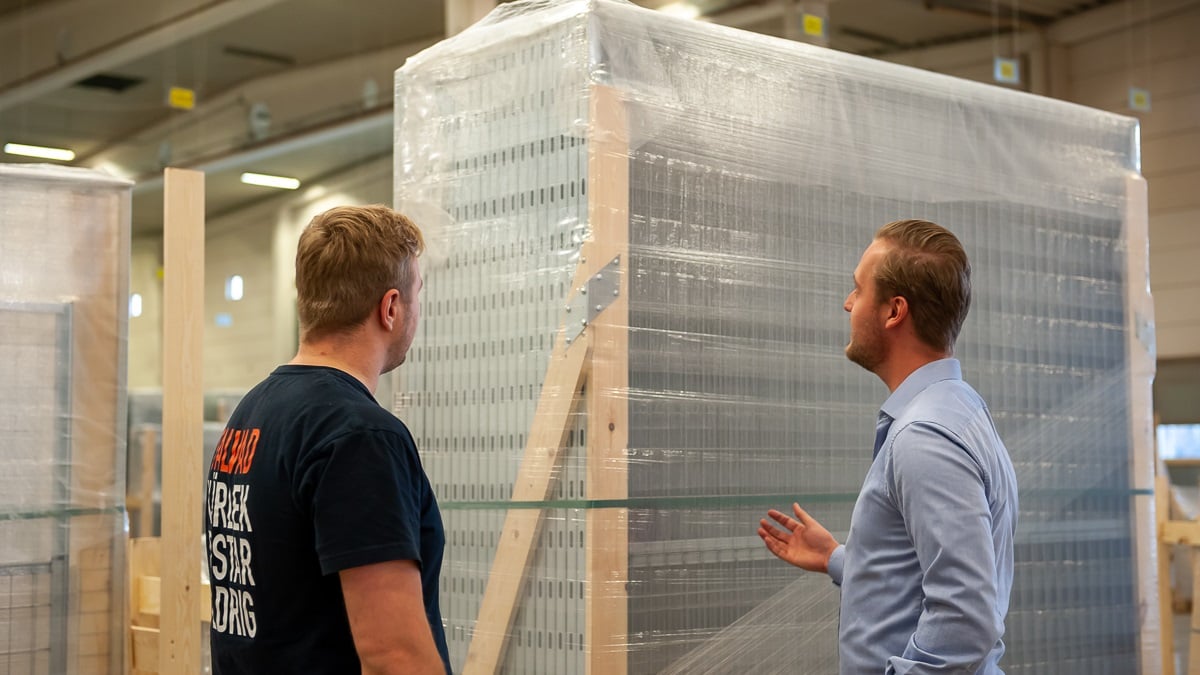
In today’s world, it is important to keep on your toes and be well-prepared for whatever the day has in store. This is so much easier to achieve when you have employees around you with different experience and knowledge. Perhaps you have read the previous blog posts “Different Nationalities, Shared Strength” and “Shared Breakfast, Nourishment for the Soul”, written by a couple of my colleagues. They give the impression that we are like a bag of mixed sweets – a great many people from different countries and different departments. And that really is true. Garantell has all functions and departments under one roof, from Production to Sales, from Development to Painting.

Time is one of the few things in life that is truly equal – no one can complain or insist that the quota is unfair. Although, the 24 hours a day we all have at our disposal can be utilised or wasted in various ways. However, only the things we manage to accomplish endure over time.
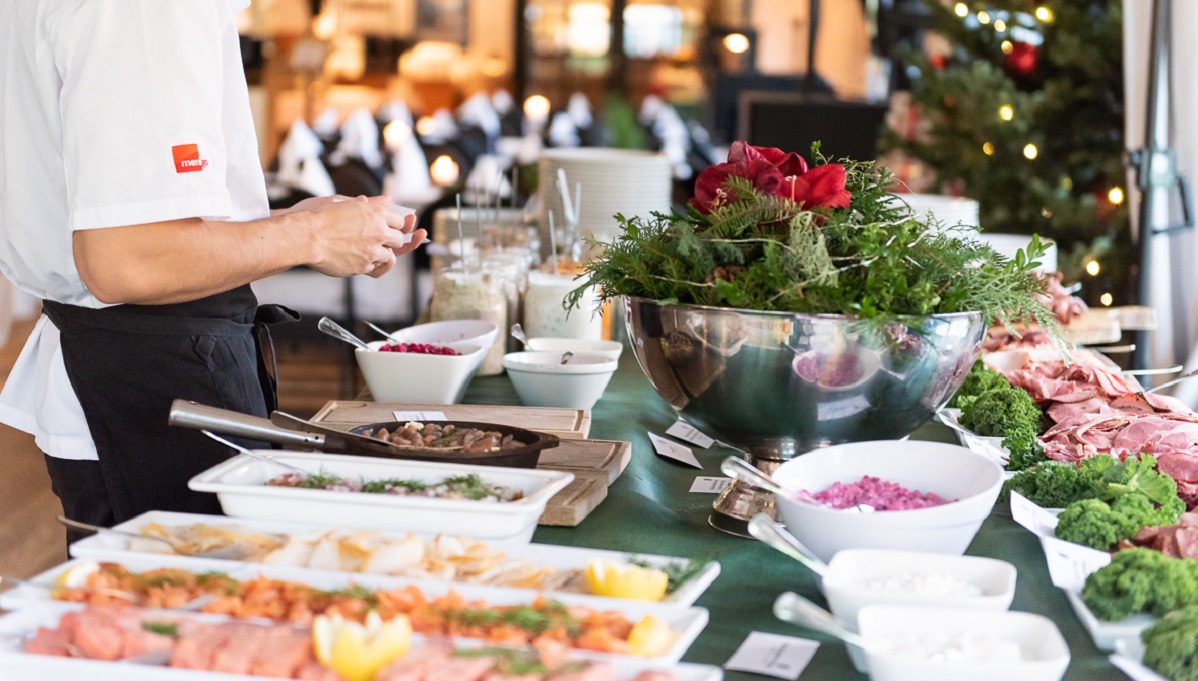
This year, many traditions have had to take a back seat. Due to the spread of the coronavirus, there are restrictions regarding the maximum number of people permitted to gather in one place, and festive events have had to adapt. This has affected the ability to hold everything from weddings to funerals in the usual way. Online funerals have become common in Sweden, while holidays such as Midsummer, crayfish parties or birthdays have been celebrated within the immediate family instead of as is usually the case with the extended family and friends. Christmas, which is considered the major holiday period in much of Europe, is now on the horizon. That too will be different for many people this year, as older relatives are unable to participate in the festivities in the same way as usual.
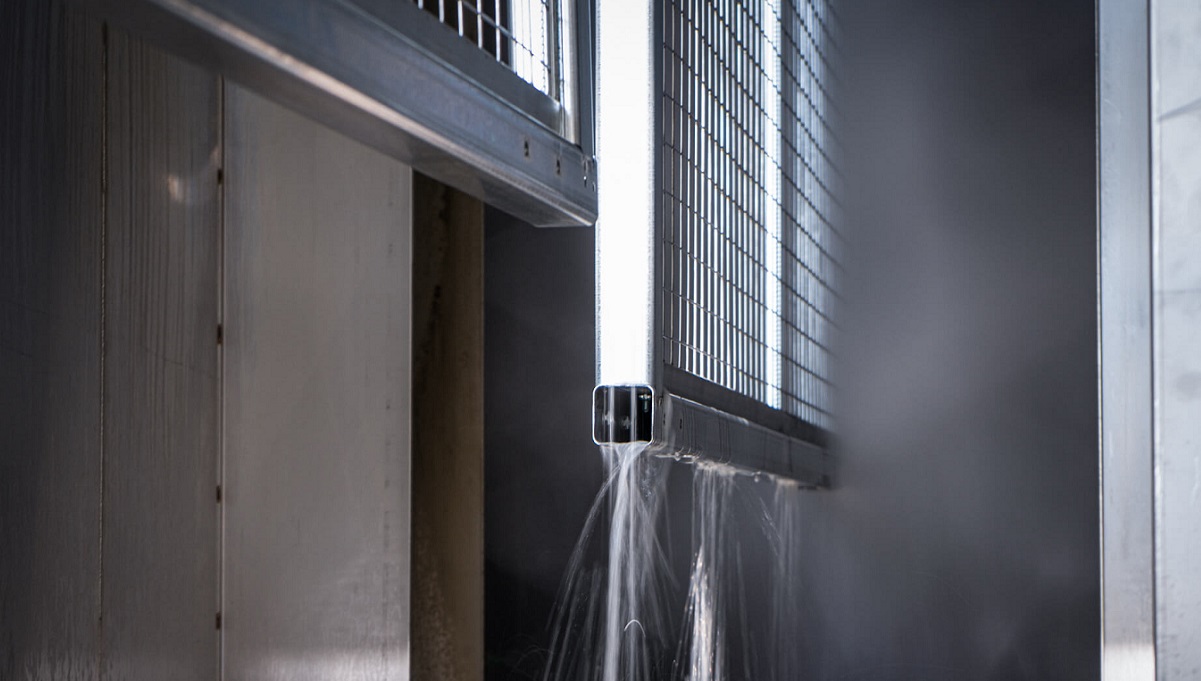
As a little girl living in the Polish countryside, I was a very good sales person in the school’s candy shop. Of course part of the profit disappeared in my mouth, but that is a pleasant detail … And now I am in a completely other line of business, mesh products, a great learning experience. However, occasionally I feel like the little candy seller again, as one my most favourite things to do is to go to the factory. To me it feels like the excitement of a school trip, or even more, I feel like a character in Charlie and the Chocolate Factory, the wonderful book by Roald Dahl. There is so much to see, and every time I discover something new. So today, I want to take you along on a trip to my favourite magic place, the one where our mesh panels are created.
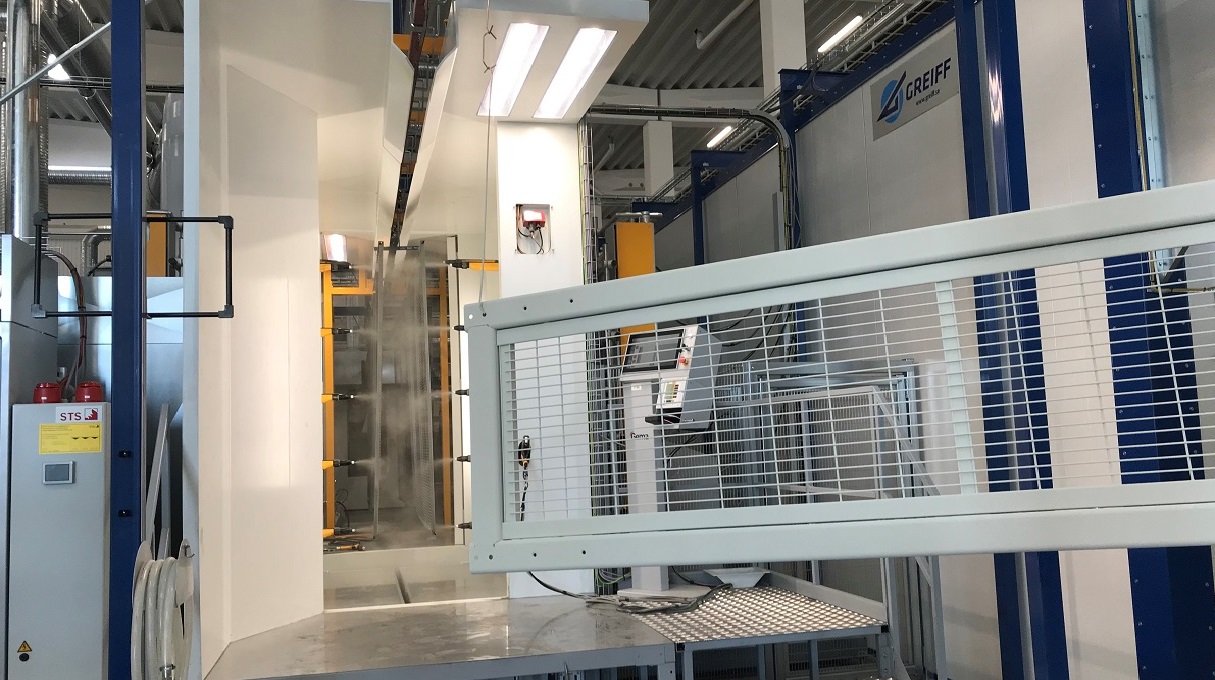
We have recently installed a completely new powder coating line in our factory, in which objects of up to 2000 x 3000 x 700 mm can be powder coated in any RAL colour. The staff in charge have 50 years of experience in powder coating. This new investment means that we now can offer you an even better and faster service than before – a way of simplifying everyday life.
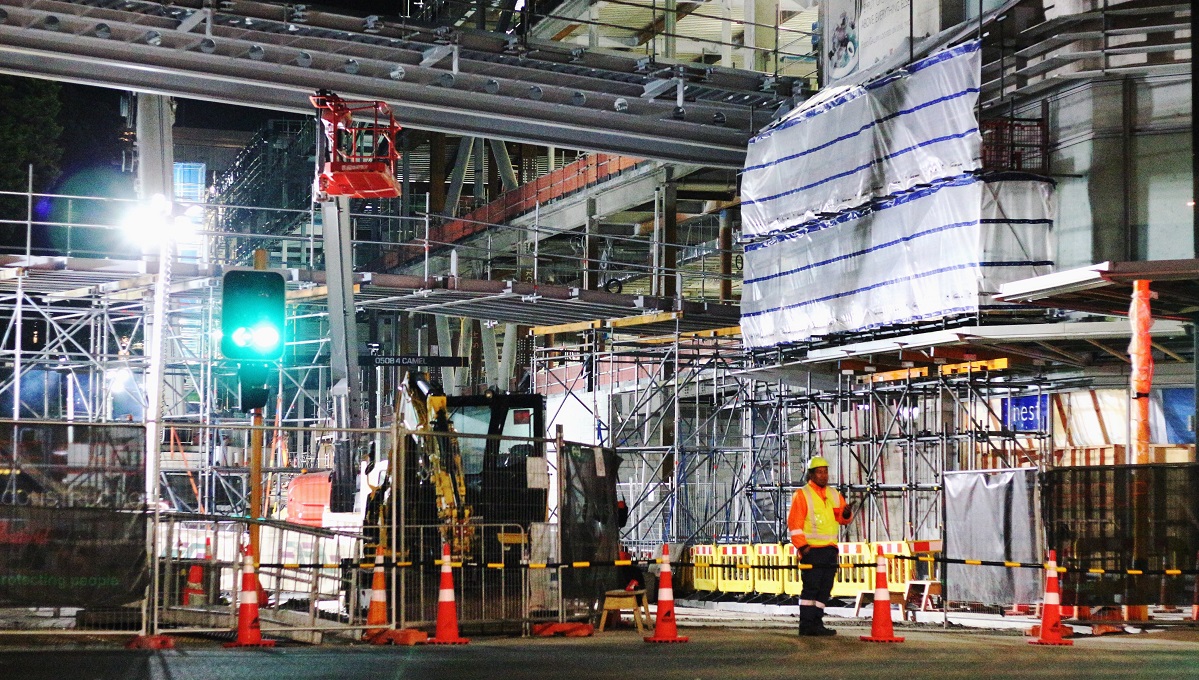
How many risks are there in the workplace and does a totally safe workplace actually exist? Is it enough to have warning tape on forklifts, should there be specific lines on the floor indicating where forklifts may drive, or should ceiling lights be illuminated to ensure safety?

What actually is the purpose of digitalisation? In today’s society, it’s the rule rather than the exception that companies are constantly looking for new IT solutions. Perhaps you’ve seen employees sighing over some “new invention” introduced by their own company or its partners.

We have all ordered something only to discover that the item has been dinged or even damaged along the way because it was poorly packed.
I have first-hand experience with bad deliveries. I tried something new and ordered a sofa online: good price, stylish, and it would only take a week to get to me. Blissfully ignorant, I placed the order and waited eagerly. The delivery was on time and I started assembling my new sofa. 20 minutes in, I realised that the entire backrest was missing. I took photos and emailed them to the company, which nevertheless claimed that I had received everything. It took nearly four weeks before my claim was accepted and a replacement delivery was sent. That’s probably the last time I order from that company. Of course, on other occasions, everything works perfectly, but we never remember those. We expect things to work properly all the time.